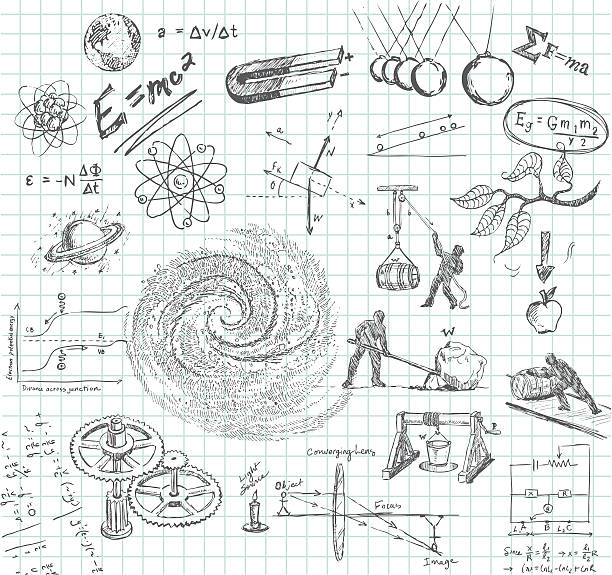QUANTUM TECHNOLOGY

HOW QUANTUM COMPUTING WILL CHANGE THE WORLD

Many companies are keeping a close eye on quantum computing because it is quickly becoming a reality. Access to quantum computing will significantly improve their business processes' effectiveness and efficiency, and many look forward to its significant benefits.
The truth is that there are billions of dollars being poured into quantum technology research and development by governments and companies on a global scale, headed by Google, Microsoft, Nvidia and Intel, who seek to lead the way.
Our responsibility as entrepreneurs and executives is to educate ourselves on the reality of these machines and the potential consequences they could have, as it's not all good news. As a futurist, I believe we should educate ourselves in the best possible way about this new reality if we want to use this emerging technology to our advantage and positively impact our organizations in the long term.
Let's see what quantum computing is and how we can get used to the idea of a reality using quantum computers.
Quantum Mechanics: What Is It?
From a general standpoint, quantum mechanics studies tiny things. It aims to explain the behavior of atoms and molecules in a way that redefines our understanding to this date. Researchers are finding ways to manipulate quantum behaviors, which will help advance the quantum field and develop new applications. So, much attention is being given to quantum physics right now, and I think it will drive how we do things in the future.
Quantum computers can perform high-speed and accurate molecular simulations, making them a vital tool for accelerating the discovery of new materials — including new drugs, solar panels, and polymers.
These machines will likely achieve the so-called "quantum advantage" within a few years, meaning they can perform a specific, practical task better than traditional computers.

Quantum Computing vs. Classical Computing
Quantum computing is a new and emerging field in the world of technology. It extends classical computing but with a different approach to solving problems. Its conception dates back to the 1980s, but it is only in recent years that we have realized its great potential if only it could be further developed and implemented in our daily lives.
Quantum computing is a form of computing that has the potential to solve problems that modern computers cannot. Quantum computing uses Qubits instead of Bits, which can be in multiple states simultaneously. This so-called superposition state means the qubit exists simultaneously in both 1 and 0 states, which is different from a conventional computer that uses transistors, which can only be 1 or 0.
The main advantage of quantum computing is the ability to work with data in different dimensions at once. This feature allows quantum computers to perform many calculations simultaneously and increase their processing power exponentially, solving complex problems that are impossible on classical computers. As more qubits are linked, a quantum computer's power increases significantly.

How Will Quantum Computing Help Us?
We mainly need quantum computers to solve complex problems that we cannot solve with a classical computer. The first problem is Optimization, which is when you want to find the best solution from many possible answers. The more possibilities you have, the more difficult it will be to find the most optimal solution for a problem, which is a task perfect for quantum computers.
The second problem is a Simulation when you want to understand how something works without physical access to it, and you want to mimic reality. This can become especially useful for complex digital twins when you want to simulate, for example, the complex behavior of planet Earth using a digital twin or analyzing weather patterns.
Quantum computers are the new frontier in data processing. They will be able to solve currently unsolvable problems and make considerable strides in research in many fields. In the future, we might see quantum computers used in medicine, genomics, chemistry, physics, and many more. However, they can also have detrimental effects on society as a sufficiently powerful quantum computer will be able to break all existing data encryption, which is why we need post-quantum encryption rather sooner than later.

How Quantum Computers Work
The concept may be difficult to understand at first, but qubits can carry out large amounts of calculations simultaneously (even more than a traditional computer can do), which can significantly speed up the entire process of solving an issue. It means that quantum computing is much faster than regular computing when it comes to certain particularly challenging problems. To put this in perspective, in 2021, researchers from the quantum computing company D-Wave showed how a quantum computer could solve a decades-old problem three million times faster than a normal computer.
Calculating numbers above 500 digits is challenging and time-consuming for a traditional computer to process. On the other hand, advances in factoring large numbers of 500 digits is a much faster process, improving the performance of quantum computers. The result is faster decision-making processes within organizations as they produce more accurate results in less time, according to Peter Shor, MIT professor of applied mathematics and inventor of the renowned Shor's Algorithm.
Shor’s work has been essential in the world of quantum computing. For example, he proved in 1994 through this algorithm that the integer factorization problem can be efficiently solved on a quantum computer, fostering important advances in this field for years to come.

How Will Quantum Computing Change the World?
Pharmaceuticals
In the biopharmaceuticals industry, quantum computing has the potential to revolutionize molecular research and development as well as provide value downstream in production.
New drugs, for example, cost an average of $2 billion and take more than ten years to reach the market after discovery. Quantum computing could make drug discovery, drug design, and toxicity testing more efficient by reducing the reliance on trial and error and finding and combining entire new molecules by analyzing vast amounts of data.
Getting products to suitable patients more quickly and efficiently would be easier. In other words, it would improve the lives of many more patients. This milestone could be possible in the field of precision medicine, which aims to transform how it diagnoses, treats, and prevents diseases. Over the past few years, we have witnessed the development of an increasing number of personalized medicine-related devices or apps.

With the combination of quantum technology, bioinformatics, edge computing, and AI, it would be possible to think of a future where personalized medicine is a reality. Using quantum simulation, experts can study groups of molecules, proteins, and chemicals at once, which could take thousands of years for a typical computer to do, making it possible to develop drugs faster and cheaper.
The scientists of the pharmaceutical company Roche hope that quantum simulations will speed up the development of drugs and vaccines to protect against illnesses such as Covid-19, influenza, and cancer, and perhaps even find the cure for Alzheimer's disease.
Moreover, quantum simulations could replace lab experiments, reduce research costs, and reduce animal and human testing, as they could obtain much more assertive and effective results faster for whatever purpose.
Chemicals
Quantum computing could also benefit Chemical companies in production, R&D, and supply chain operations, for example, by improving the designs of catalysts. A catalyst is a substance that increases the rate of a chemical reaction without being used up in the process. In other words, they provide just enough fuel to get reactions happening sooner and make them more efficient.
The development of new and improved catalysts could make it possible to reduce energy usage during production processes. These new catalysts might help us reduce our dependence on petrochemicals and use sustainable substances as feedstock. In addition, developing these catalysts could make carbon harmless while unlocking new possibilities.

THINGS YOU MAY NOT KNOW: Is quantum computing going to be the next big thing? Hailed as the next big thing with the potential to address many of today's unsolvable problems, the quantum computing market is expected to reach US$1.76 billion by 2026, fueled by investments from the public sector for research and development
THINGS YOU MAY WANT TO SAVE: David Awschalom: The emergence of quantum technology is a little like moving from a digital world in black and white to a quantum world in color. DONT SAVE ANYTHING GET READY FOR THE FUTURE!
ZENTRAVELER SAYS: Whats bigger than fire, the wheel, the automobile, the internet, the smartphone? Quantum Technology. If Quantum Technology hasn't profoundly shocked you, you haven't understood it yet. QUANTUM TECHNOLOGY THE HOLY GRAIL OF THE FUTURE.
DISCLAIMER: ZENTRAVELER HAS NOT BEEN READ IN TO FREE ENERGY, REVERSE UFO ENGINEERING, UNIFIED FIELD EQUATIONS, TIME MACHINES, MIND CONTROL TECHNOLOGY, ANTI GRAVITY, DNA, WARP DRIVE, ACTIVATED NEO CORTEX, COSMIC COUNCIOUSNESS AND QUANTUM MECHANICS.
From here to Infinity is a relatively short ride! The next leg takes eons and eons as you fly through the Barycentric Dynamical Time Zone! …and on and on and on. Follow the Zentraveler Newsletter often for Travel, Health and Zen-like stories and such. Where else can you get a THREE IN ONE NEWSLETTER FOR THE PRICE OF FREE.

ZENTRAVELER IS A PERSONAL NEWSLETTER, DESIGNED TO GIVE TRAVEL, HEALTH, WRITING AND HUMOR INCLUDING HELPFUL HINTS WITH A ZEN LIKE QUALITY.
